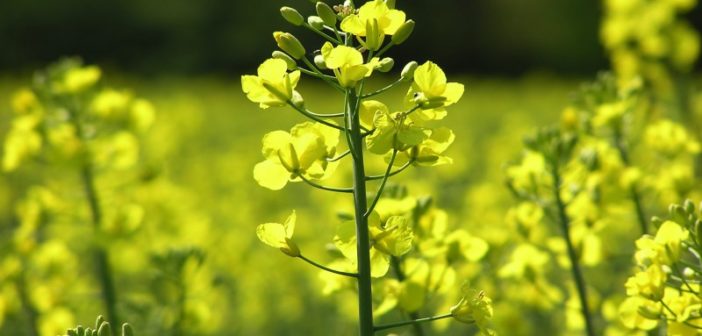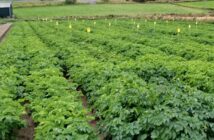Major steps forward in breeding technology for OSR in recent years have resulted in genetic advancements and more choice for growers.
“We now have the genetics in place to deal with some of the major challenges that the crop faces around establishment, as well as gains in disease resistance,” says Wynnstay seed manager, Richard Torr.
“The 2017 Recommended List offers a range of OSR varieties for growers to select from, with a mixture of hybrid and conventional varieties which can seem daunting. Therefore, we’ve put together a selection of the best options we’re championing, as they will suit growers in the west.”
He explains that robust agronomics are a necessity and should form the base of any variety decision, with high resistance ratings, good vigour at establishment, and rapid early spring development all crucial factors.
Mr Torr believes that there are a number of exciting prospects to choose from this season. “Campus is leading the way as the best performing conventional variety, having been tried and tested in 2016.
“It’s the leader of the non-hybrids, with high ratings for lodging resistance and stiffness, as well as a disease resistance rating against Light Leaf Spot of 6. The variety is known as the ‘seed with speed’ and has more vigour than many hybrid varieties.”
For hybrid varieties, Mr Torr champions two candidate varieties, Arrow and Architect, both produced by Limagrain. “Arrow is a great OSR all-rounder, with superb agronomics, and the highest ever merit rating. The variety has a lodging resistance rating of 8, and a Light Leaf Spot resistance rating of 7 along with one of the highest yields available.
“Architect also offers a strong agronomic package. It’s the first high yielding hybrid variety with the added bonus of turnip yellow virus (TuYV) resistance, meaning it can remove the hassle of growers having to spray for aphids in the autumn. Since the withdrawal of the neonicotinoid seed treatments, it’s a very positive development to have genetic resistance available. Architect is a very strong agronomic package,” he adds.
Mr Torr says that Clearfield varieties will once again take a greater share of the oilseed rape market as growers and advisors see huge benefits in weed control strategy and any feelings of uncertainty and apprehension associated with the technology ease.
“We also will see more of the OSR area occupied by varieties with genetic clubroot resistance. There are increasing reports of clubroot incidence in the western region, perhaps as a legacy of too much rape recently, or sometimes regular use of forage brassicas from further back.
“Varieties like DK Pliny offer clubroot resistance and much improved agronomics including very early maturity, which is always seen as a positive characteristic.
“Each farm system differs from the next, with soil type, pest problems and previous disease concerns all playing a role in the decision making process, which is why I recommend discussing your options with a specialist.”
The Wynnstay portfolio of OSR varieties champions a range of options to suit all arable growers in the west, and the team of independent specialists can offer bespoke advice on the best choice for your farm.




